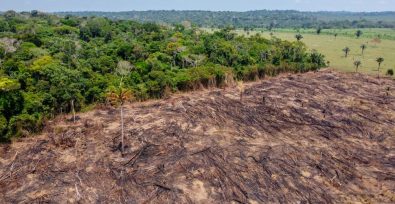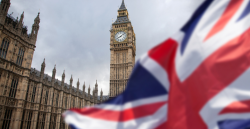The US finally endorsed the nomination of civil rights prosecutor John Cotton Richmond as the new Ambassador-at-Large to Monitor and Combat Trafficking in Persons.
The ambassador had tremendous power in shaping how the US positions itself to fight human trafficking, both domestically and internationally, through the annual Trafficking in Persons Report that ranks countries on their efforts.
In an opinion piece for World Economic Forum, Anne Gallagher, President of the International Catholic Migration Commission, and Luis C. deBaca, Robina Fellow, Gilder Lehrman Center for the Study of Slavery, Resistance, & Abolition at Yale University, propose four recommendations for Richmond:
1. Rebuild US credibility and influence
American influence in this area has been steadily eroding, coinciding with the post of ambassador being underoccupied for several years. While the report has continued to be produced, there is evidence to suggest an increased ‘gaming’ of the assessment system: that countries under scrutiny and their defenders are becoming ever more adept at presenting an illusion of progress, without undertaking the root and branch reforms necessary to address exploitation meaningfully.
2. Maintain focus on all forms of trafficking
For many reasons, including the historical roots of the anti-trafficking movement, there has always been a disproportionate focus on trafficking for sexual exploitation. In its outreach, the ambassador’s office needs to hold firm against a dangerous slippage that conflates vice crimes (pimping, etc.) with trafficking, and to resist being drawn into disputes about local prostitution policies. The office also needs to demonstrate a firm commitment to confronting the many forms of exploitation, from forced labour to the global organ trade, that are still not receiving the attention and response they deserve.
3. Affirm government responsibility for corporate complicity
In key sectors including fisheries and manufacturing, business groups are taking the initiative, developing standards and codes of conduct to guard against complicity in exploitation. The new ambassador should strongly support efforts to bring the private sector in as key partners. But he also needs to be clear that the recent wave of action is nowhere near enough.
For example, legislatively imposed reporting requirements will be of limited value unless and until they are attached to a meaningful, government-administered monitoring and sanctioning mechanism. And experience has taught us the hard lesson that voluntary or self-regulation is unlikely to make a long-term positive impact.
4. Prioritize prosecution and justice for victims
According to the most recent Trafficking in Persons report, just over 7,000 convictions for trafficking offences were reported in 2017 – worldwide. More than 90% of these cases related to just one single form: trafficking for sexual exploitation. Only 332 convictions for labour trafficking were recorded across the globe over that same period.
In addition to these four key priorities, they urge the ambassador to institute effective labor investigations and provide protection for victims who come forward to report abuses. Victims need to be compensated and slave-made goods need to be confiscated in international trade.
Ultimately, for Gallagher and deBaca, the underlying problem is that no country in the world truly takes human trafficking seriously enough.
“The new ambassador must be prepared to expose the stark disconnect between what governments say and what they do. Like so many other crimes that predominantly affect women, the marginalized and the powerless, trafficking is just not a high priority in the criminal justice system of any country.”







Freedom United is interested in hearing from our community and welcomes relevant, informed comments, advice, and insights that advance the conversation around our campaigns and advocacy. We value inclusivity and respect within our community. To be approved, your comments should be civil.